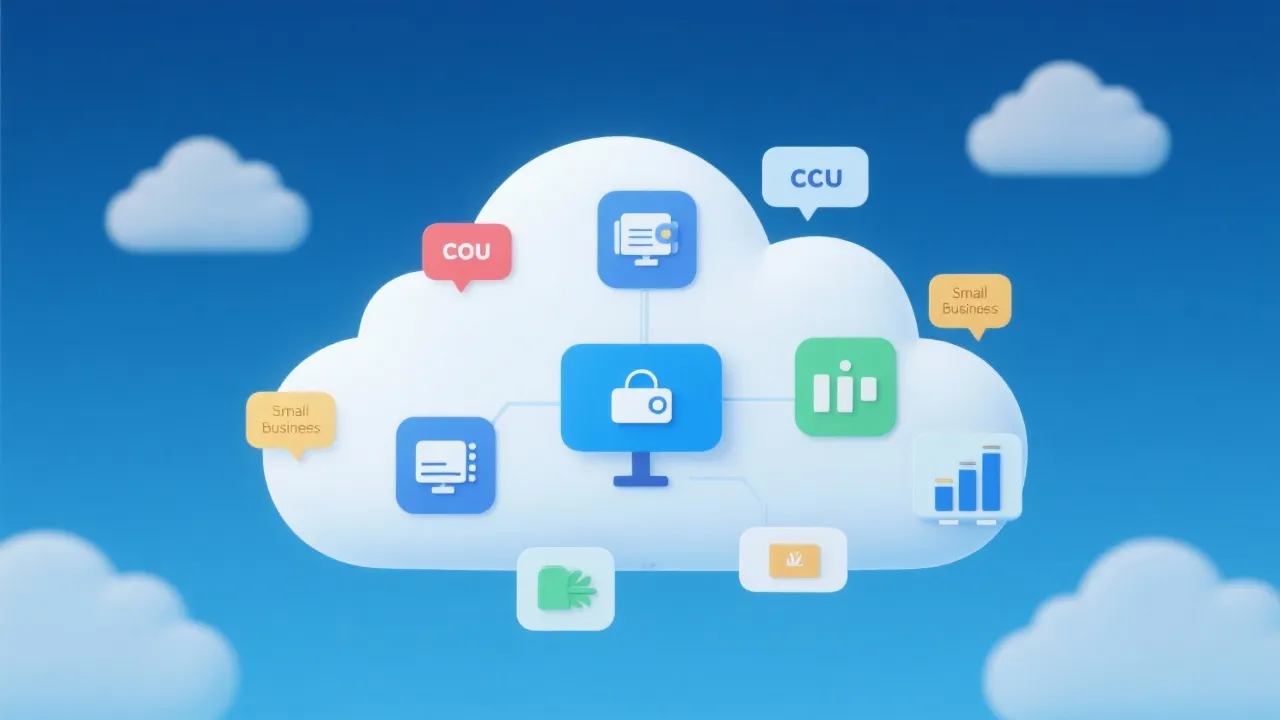Cloud computing technology presents a transformative opportunity for small and medium-sized businesses (SMEs) to enhance their operations economically. By utilizing cloud services, SMEs can access scalable resources, improve efficiency, and increase security without significant upfront investments. This article explores the benefits, implementation strategies, and considerations for SMEs looking to adopt cloud computing.

In today's digital landscape, cloud computing technology emerges as a game-changer, especially for small and medium-sized businesses (SMEs). As these enterprises seek innovation and ways to reduce operational costs, cloud computing offers scalable resources and enhances operational efficiency. By leveraging cloud solutions, SMEs can access advanced technologies that were once exclusive to large corporations, thus leveling the playing field.
Cloud computing fundamentally reshapes how businesses operate by allowing them to store and process data in remote servers, managed by third-party service providers. The widespread adoption of high-speed internet and mobile devices has accelerated the shift towards cloud-based solutions, making it easier for SMEs to utilize these powerful tools without significant upfront investments.
Cloud computing provides numerous advantages for SMEs, such as:
The transition to cloud computing requires strategic planning. Here's a step-by-step guide for SMEs:
While cloud computing offers significant advantages, SMEs must consider potential challenges:
| Provider | Strengths | Considerations |
|---|---|---|
| AWS | Comprehensive services, strong performance, and global reach. AWS is known for its extensive suite of services that can meet the needs of virtually any business. | Complex pricing models which can be difficult for SMEs to navigate. Proper understanding of their pricing model is crucial to avoid unforeseen costs. |
| Microsoft Azure | Smooth integration with Microsoft products, making it a favorite among businesses already using Microsoft ecosystems. | May require IT expertise to leverage its full capabilities. Businesses should have access to skilled professionals to manage their services effectively. |
| Google Cloud | Strong in AI and machine learning, providing SMEs with access to cutting-edge technology and innovation. | Less extensive services compared to competitors like AWS, which may limit options for businesses with very specific needs. |
Several SMEs have successfully transitioned to cloud technology, enhancing their business operations and reducing costs. A notable example is a retail company that utilized cloud-based inventory management systems to streamline operations. The company saw a 30% reduction in overhead costs and an increase in sales due to better stock management and analytics.
Another commendable case involves a healthcare provider that implemented cloud solutions to improve patient data management. This allowed for secure sharing of information between healthcare professionals, which improved patient care and led to a 20% increase in operational efficiency. These success stories exemplify how diverse SMEs can leverage cloud computing to drive growth and innovation in their respective fields.
The move to cloud computing technology represents a strategic decision for SMEs aiming to stay competitive. Through meticulous planning and selecting the right solutions, businesses can enjoy robust, scalable, and efficient operations, positioning them for future growth and innovation. As the digital landscape continues to evolve, embracing cloud computing will be essential for SMEs that wish to thrive and not just survive in the modern economy.
The future of cloud computing for SMEs looks promising as technology continues to advance at a rapid pace. Emerging technologies such as artificial intelligence (AI), machine learning, and the Internet of Things (IoT) are set to revolutionize the way businesses operate. These technologies integrate seamlessly with cloud solutions, providing SMEs with the tools they need to analyze data, forecast trends, and optimize operations.
As competition heats up in the SME landscape, those who adopt cloud solutions will be better positioned to leverage these emerging technologies. For instance, AI can help SMEs automate routine tasks, allowing employees to focus on higher-value work, while machine learning can provide deep insights into customer preferences, driving more personalized marketing efforts.
Additionally, the increasing shift towards remote work and digital collaboration necessitates robust cloud solutions. Businesses that invest in cloud technology will not only enhance operational flexibility but also improve resilience against disruptions, such as those experienced during global pandemics.
The transition to cloud computing is no longer a luxury but a necessity for SMEs striving for growth and innovation in both local and global markets. By embracing this technology, SMEs can tap into a wealth of resources that dwarf what traditional IT setups can offer. As these businesses integrate cloud solutions into their operations, they will find opportunities to streamline processes, reduce costs, and ultimately drive higher levels of customer satisfaction.
Overall, the sky is the limit when it comes to what SMEs can achieve with cloud computing. By remaining agile and open to adapting their business models to leverage cloud capabilities, they can unlock new avenues for growth while ensuring sustainability in an ever-evolving marketplace. The future is bright for SMEs who are ready to harness the power of the cloud.
Explore the Tranquil Bliss of Idyllic Rural Retreats

Ultimate Countdown: The 20 Very Legendary Gaming Consoles Ever!

Understanding Halpin and its Influence

Affordable Full Mouth Dental Implants Near You

Discovering Springdale Estates

Illinois Dentatrust: Comprehensive Overview

Embark on Effortless Adventures: Unveiling the Top in Adventures Made Easy Outdoor Equipment

Unveiling Ossur Valves: Innovation in Prosthetics

Unlock the Full Potential of Your RAM 1500: Master the Art of Efficient Towing!
